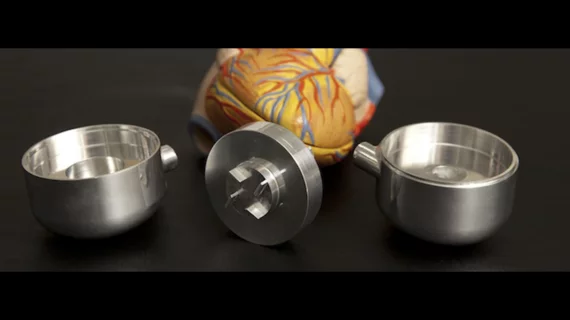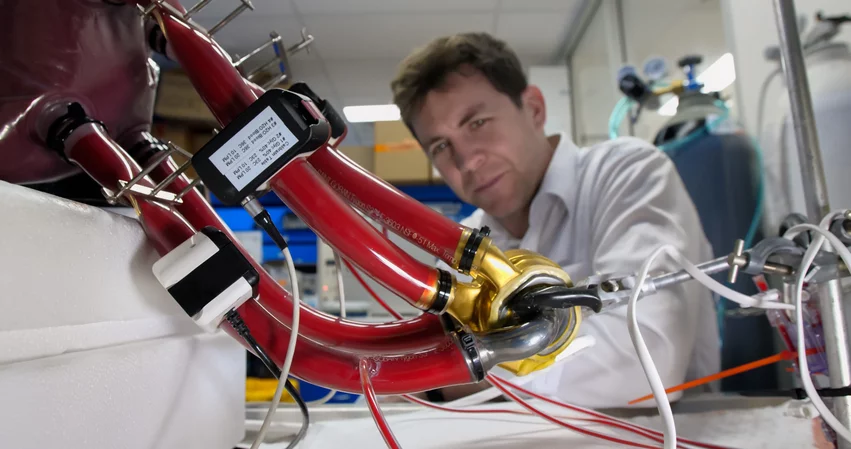‘Incredibly rewarding’: FDA expands total artificial heart study after early success
BiVacor, the California-based medical device company known for its total artificial heart (TAH) technology, has completed the initial phase of an early feasibility study (EFS) first approved by the U.S. Food and Drug Administration (FDA) in December 2023.
Based on early data from the patients who have already received a BiVacor TAH, the FDA has now approved the EFS to expand to an additional 15 patients.
BiVacor's TAH technology was designed to serve as a bridge to transplant in patients with end-stage heart failure. It is made of titanium and approximately the size of an adult’s fist. The TAH has no valves or flexing ventricle chambers, and its only moving part is a magnetically suspended double-sided centrifugal pump impeller.
Five patients received a BiVacor TAH as part of the EFS, including one implanted in July at The Texas Heart Institute at Baylor St. Luke’s Medical Center. According to BiVacor, all five procedures were a success. Each patient waited in the hospital with the TAH for up to a month before eventually undergoing a heart transplant.
“We are thrilled to share that the first patients implanted with the BiVacor TAH achieved expected milestones utilizing the device as a bridge to heart transplant and experienced no complications,” Daniel Timms, PhD, founder and chief technology officer of BiVacor, said in a prepared statement. “This has been decades in the making, and to achieve such success during first-in-human trials is extremely encouraging. We are incredibly grateful to all the patients, their families, and clinical partners involved. Without them, we wouldn’t be able to get the TAH to the people that need it most.”
“It is incredibly rewarding to see our device provide such efficient support to the first U.S. patients,” said William Cohn, MD, BiVacor chief medical officer and a heart surgeon with the Texas Heart Institute. “The unique design and features of the BiVacor TAH translated into an unparalleled safety profile without complications or stroke. Now that the first five patients have been implanted, we will continue to work with the FDA to provide the necessary data to expand our EFS study.”
Additional information about the BiVacor TAH technology is available here.


